Elections have historically been a fundamental pillar of democracy, serving as the primary mechanism for citizens to express their will and elect their representatives. However, in the current Venezuelan context, the debate transcends the mere selection of leaders to focus on a deeper question: how power can and should be effectively transferred to the people . A recent discussion, organized by the Pueblos Institute for Original Thought, addressed these crucial issues, featuring the participation of prominent intellectuals such as decolonial thinker Ramón Grosfoguel and Hernán Vargas, Vice Rector of Communal Economy at the National University of the Communes (UNACOM), and moderated by Luis Berrizbeitia, director of the PUEBLOS Institute. The event sought to develop and debate fundamental aspects of the Venezuelan political structure and situation, including the previous analyses published by the institute on the upcoming municipal elections, to be held on July 27 of this year.
The Fundamental Contradiction: Representative Democracy vs. Popular Participation
The core of the discussion revolved around the inherent tension between representative democracy and participatory democracy in Venezuela. This "historical contradiction," understood as the dynamic between constituted power (the representative state) and constituent power (popular power), constitutes a distinctive feature of the Bolivarian process. Article 5 of the 1999 Venezuelan Constitution explicitly addresses this duality by stipulating that sovereignty resides " nontransferably in the people, and they exercise it in two ways ": indirectly (through voting) and directly (through mechanisms generated by legislation). This formulation, far from eluding the contradiction, centrally positions it as a " field of creative tension " that demands to be addressed and resolved.
President Nicolás Maduro's call for the new era to be characterized by "handing power over to the people" represents a fundamental challenge. It entails a reconfiguration of the state's role, where the state "disempowers itself" to transfer authority, transforming representation delegated through voting into direct and meaningful participation . The speakers analyzed how these models of representation and participation dynamically intertwine in the current moment of transition, raising crucial questions about how models of representation and participation interact in the current moment of transition and about the coexistence of future elected mayors with these ideas of political and democratic construction.
Venezuelan Innovation and the Lessons of 20th Century Socialism
Ramón Grosfoguel emphasized that Commander Chávez made a fundamental "decolonial turn" in Latin American political thought. Chávez understood that the dilemma between "statists and anarchists" is a "false dilemma" inherited from the European left, unrelated to the reality of the region. For Chávez, the strategy is not "this or that," but "both at once": contesting the representative state, winning elections, and thereby interrupting policies of domination (neoliberal, patriarchal, racist), while simultaneously building the framework for popular decision-making and participation, that is, communal power, from outside . Abandoning the state to the right or far right would be "handing them the occupation of its structures on a silver platter," so the battle must be fought in both directions simultaneously.
Grosfoguel emphasized that the challenges posed by the transition to a communal state or society are "original to the Bolivarian process," as there is no successful previous experience to serve as a model. He recalled that Hugo Chávez always encouraged us to look critically at 20th-century socialism, warning that, with the best intentions, "21st-century socialism" could repeat its problems. He historically analyzed how, after the Paris Commune, Marx and Engels conceived of a "communal communard state," which Lenin attempted to systematize with the experience of the soviets during the Russian Revolution. However, after the civil war, the soviets were destroyed, and 20th-century socialism, for the most part, was built on that 1921 "snapshot," with a party that "ruled by commanding" rather than "obeying." In his speeches, Chávez warned the community members not to allow themselves to be "instrumentalized or dominated" by the party, insisting that power should be in the hands of the people and the party at the service of the commune , not the other way around, a clear reference to the Soviet experience where the communes became "transmission belts" for the party.
Given that there is no prior experience with a transition from an inherited state to a communal state, Grosfoguel affirmed that Venezuela is "innovating" on the socialist experience of the last 200 years, following Simón Rodríguez's maxim: "we invent or we err." The challenge is how to move from a representative state, built by the bourgeoisie and imperialism, to a communal society where power does not operate from the top down . Grosfoguel suggested that municipalities, due to their proximity to the grassroots, can be a "site of experimentation" for this transition, where communes, as a "political subject" and "horizon of transformation," can gradually replace the state in daily decisions. The solution, he emphasized, will emerge "creatively from below, from the people themselves," and not from partisan directives. The key is to generate awareness among the "people" that the path forward is to gradually replace the existing state with a communal state.
Advances and Challenges in the Construction of Popular Power
Hernán Vargas delved into the construction of popular power, outlining its organizational evolution from initial sectoral forms, such as technical water committees or urban land committees, to more comprehensive structures represented by communal councils and communes. A crucial sociopolitical aspect he highlighted is the transformation in the profile of Venezuelan political leadership: a growing prevalence of figures from the community is observed , which contrasts sharply with the Western trend, where economic and business elites tend to dominate the political sphere.
In quantitative terms, Vargas presented a revealing comparison that underscores the country's commitment to popular power. While the country elects a limited number of representatives to positions such as 335 mayors, 24 governors, and various legislative deputies, there is a vast network of spokespersons for popular power . It is estimated that "just over 1,700,000 people have been elected by their community as spokespersons" in approximately 40,000 communal councils. This figure, substantially higher than that of officials elected by representative means, "gives an idea of where our commitment lies in terms of the struggle for power," indicating a clear orientation toward the popular base.
Vargas cited Chávez in 2012, who postulated that building socialism required popular power to be capable of generating "new forms of political management, new forms of planning, new ways of producing the material conditions of life under different forms of sociability," and, simultaneously, of "destroying, pulverizing, the forms of the bourgeois state." The current scenario of July 27, with the coincidence of municipal elections and a popular youth consultation on communal projects, reiterates the centrality of this contradiction. It demands the intervention of "political operators on both sides of the issue" (representative and popular), whose work implies that their current role "ceases to exist or mutates into another type" in accordance with the transfer of power.
There was speculation about the possibility of a future constitutional reform that, rather than referring to generic direct forms, "would probably already speak of the commune, of the construction of the communal state." This vision is presented not as a utopian thesis, but as a projection based on accumulated practice and experience. The key lies in generating the "conditions of strength" necessary to advance this project, transcending mere rational argumentation . Elected mayors, therefore, must take an active role in pulverizing the bourgeois state and its old forms of management, favoring the growth of the communal alternative. Vargas warned, in line with Chávez's thinking, that the commune cannot be limited to the local level, as this would lead to failure and competition; its development must scale to the municipal, regional, and national levels.
The Role of Leadership and the Political Program
The discussion also emphasized the importance of the program as true leadership, a concept President Maduro has emphasized. Instead of electing just one person, the people must elect a project and have mechanisms to monitor its implementation, a concept Chávez called "social oversight." This implies that the centrality of the program must be established as a political culture, moving beyond the discussion of who will accomplish the task to focus on the programmatic content . It was emphasized that "the political offer must increasingly be based on the transition program that allows us to advance in the construction of socialism."
Hernán Vargas also made a distinction between "antagonistic contradictions" and "resolvable" or secondary contradictions. He argued that there is no antagonistic contradiction between the elected mayor and popular power, as long as the official fulfills his or her role as operator of a bourgeois state that must be transformed. The task is to work together to "destroy, transform, and modify" the state's metabolic logic.
The University of the Communes and the Systematization of Knowledge
The National University of the Communes, according to Vargas, has a central role in producing knowledge, awareness, and methods for this transition phase, building a revolutionary theory for territorial socialism from the commune, through a dialogue that generates civilizational alternatives . Grosfoguel added that the University of the Commune must be clear about "what it should not do," avoiding becoming another "Westernized, colonial, Eurocentric" institution and ensuring the participation of the community members themselves in the production of knowledge. Professors and staff must be "at the service of the project" and of the community members, allowing them to "take ownership of the space, build it, and promote the knowledge they need, not what we think they need."
Conclusion and Critical Perspectives
In short, the discussion emphasized that the transition to a participatory democracy model in Venezuela is not just a matter of political theory, but a practical and urgent necessity. Popular participation should not be a mere slogan, but a tangible reality reflected in government structures and in the daily lives of citizens.
The construction of the "historical subject" of this transition implies a double transformation: on the one hand, the traditional subject in representative positions must "self-destruct" or "subvert" their role; on the other, the subaltern subject must overcome the culture of waiting for solutions and transform into a " political subject of the people " who actively participates in the collective construction of their own alternatives. This process, antagonistic to top-down construction, is based on the aggregation of wills for transformation.
The role of the Peoples Institute for Original Thought is crucial, not only as a space for debate, but as a catalyst for social and political change in the country, confronting historical contradictions and building innovative knowledge and practice in a constant "democratic ebullition," without static manuals, questioning itself time and again. However, there is a pending debt in the systematization and international dissemination of the Venezuelan experience, even among sectors of the Latin American left, which limits the reach of these valuable lessons.
In light of the reflections presented, a series of key points and challenges emerge that require strategic attention and concerted action. These elements not only consolidate the lessons learned from the discussion, but also outline future avenues for deepening and materializing the participatory democratic project in Venezuela.
Points for Action and Critical Reflection:
- Strengthening awareness and tools: It is imperative to provide community spokespersons with greater awareness and practical and theoretical tools for territorial self-governance, promoting new forms of political management, planning, and production.
- Transforming the State's Role: Mayors and elected officials must take on the challenge of actively working to transform or eliminate their traditional roles, transferring power to the communities and shattering the metabolic logic of the bourgeois state.
- Centrality of the program and social oversight: It is essential to consolidate a political culture where the program is the true leader, enabling collective management and planning of social issues and overcoming dependence on individual leaders.
- International visibility: The theoretical systematization of the Venezuelan communal experience and its international dissemination are urgent tasks to counteract hegemonic narratives and share a model of participatory democracy that is an "innovation" in the history of socialism. The development of subaltern political theory is necessary.
- Formalization of the Communal State: The possibility of a constitutional reform that formalizes the communal state as a non-utopian thesis, but rather one based on accumulated practice, represents a strategic horizon for Venezuela's political future.
- Strategic Dimensions of the Commune: Maintaining and developing the vision of the commune not only as a political and social project, but also as a civilizational alternative to ecological collapse and as a strategic anti-imperialist geopolitical element, is key to its transcendence.
This process of " democratic ferment " is a path without static manuals, requiring constant questioning and a capacity for innovation to build a more just and participatory model of society. The consolidation of this model represents not only a political task, but a historical imperative for the profound transformation of power structures and the full realization of popular sovereignty.


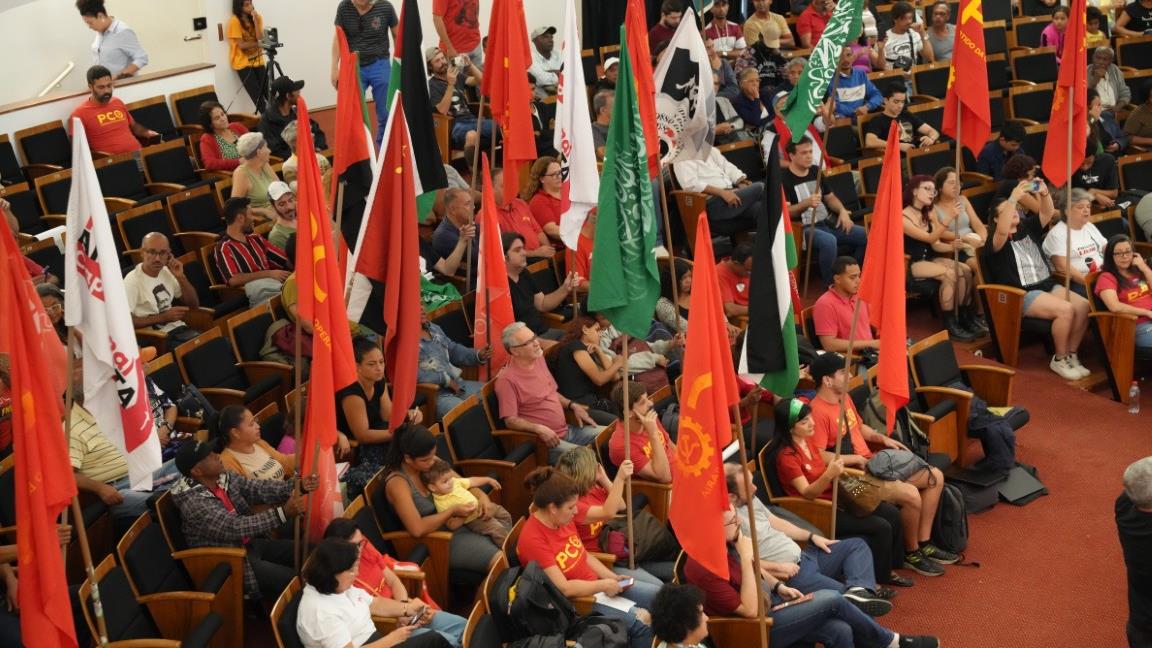
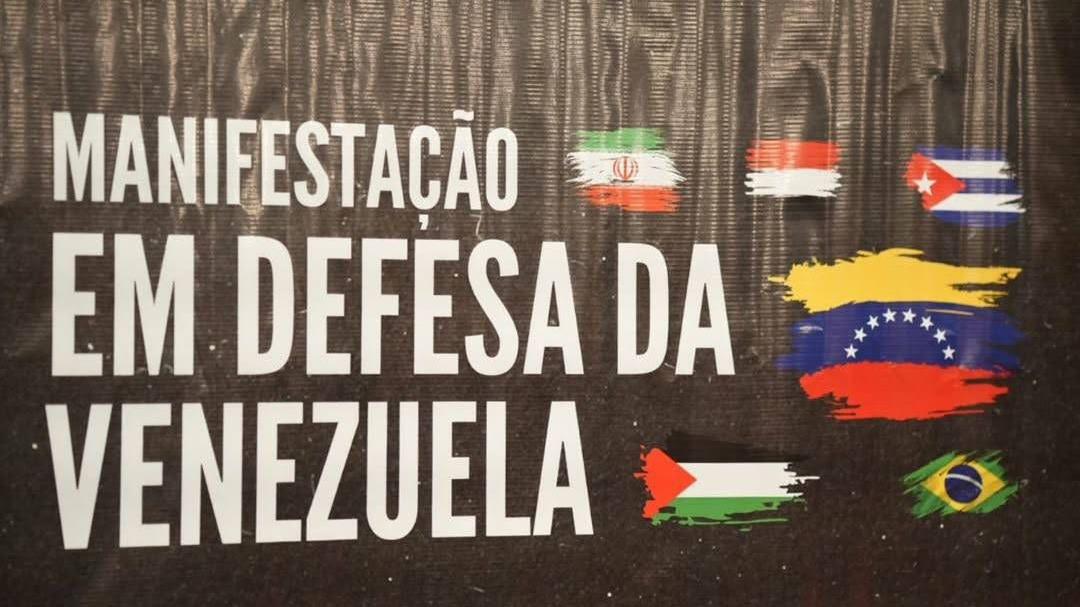
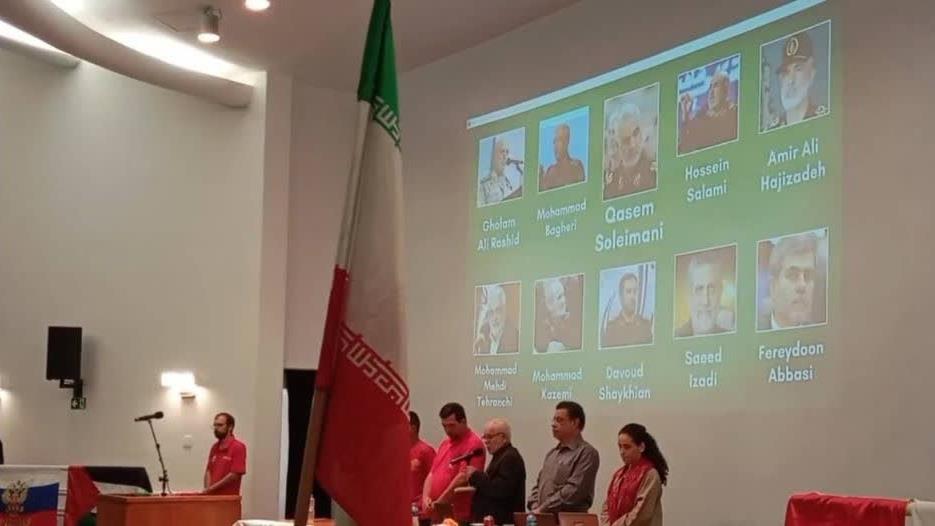
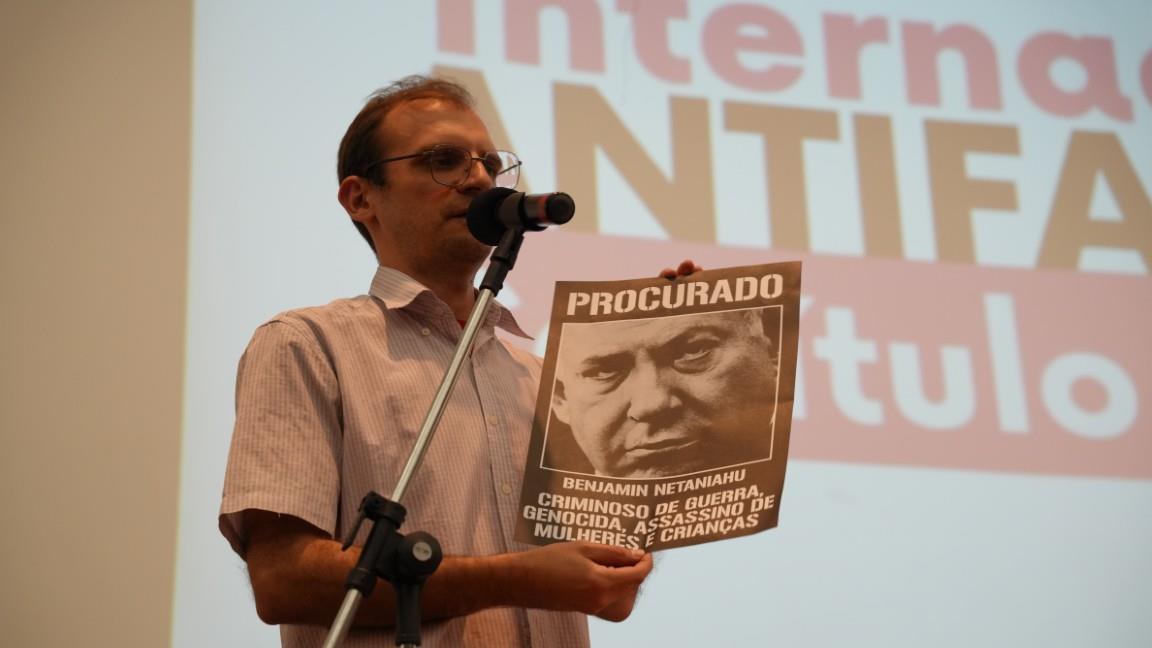
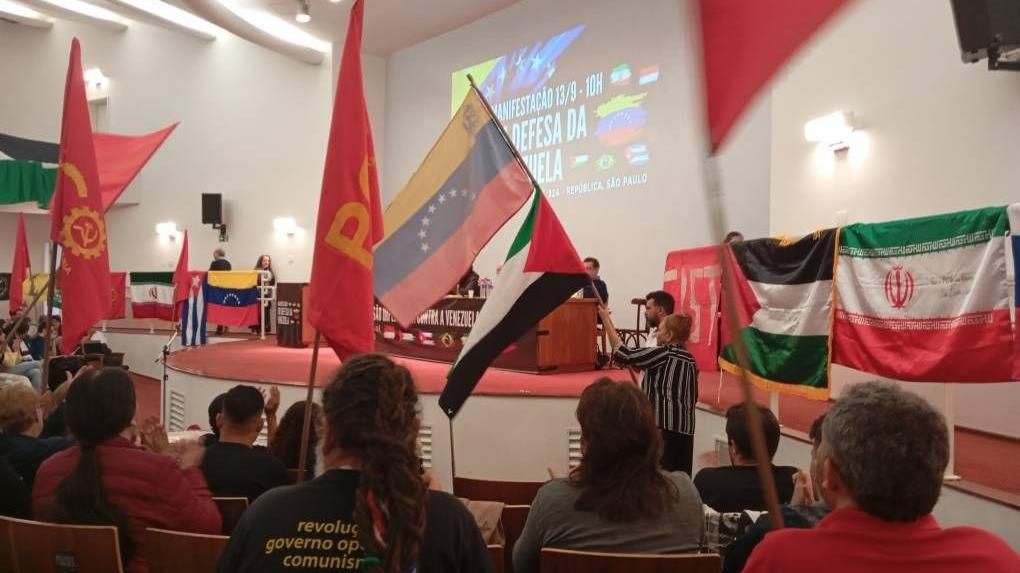
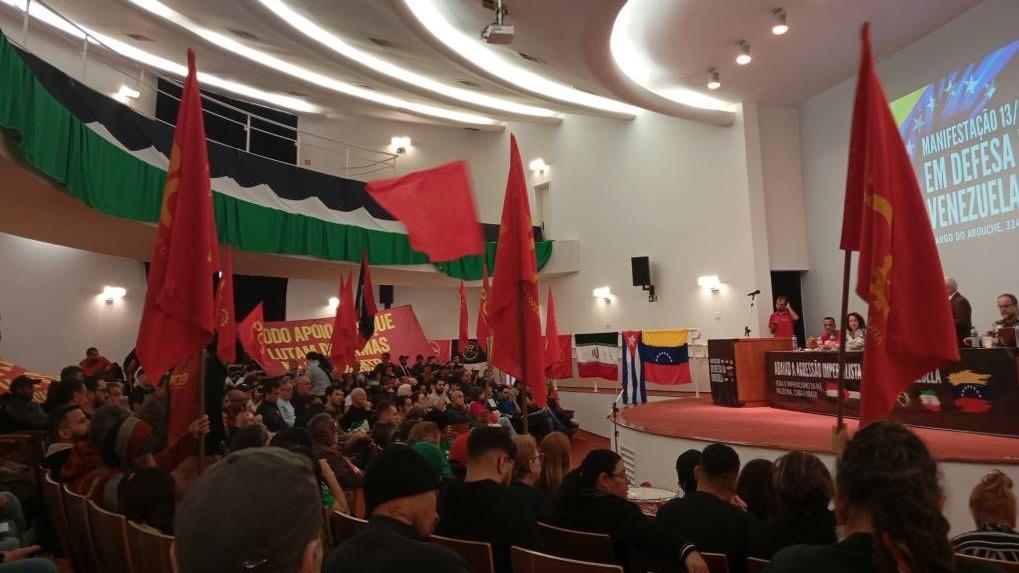


Cuba! 🤩